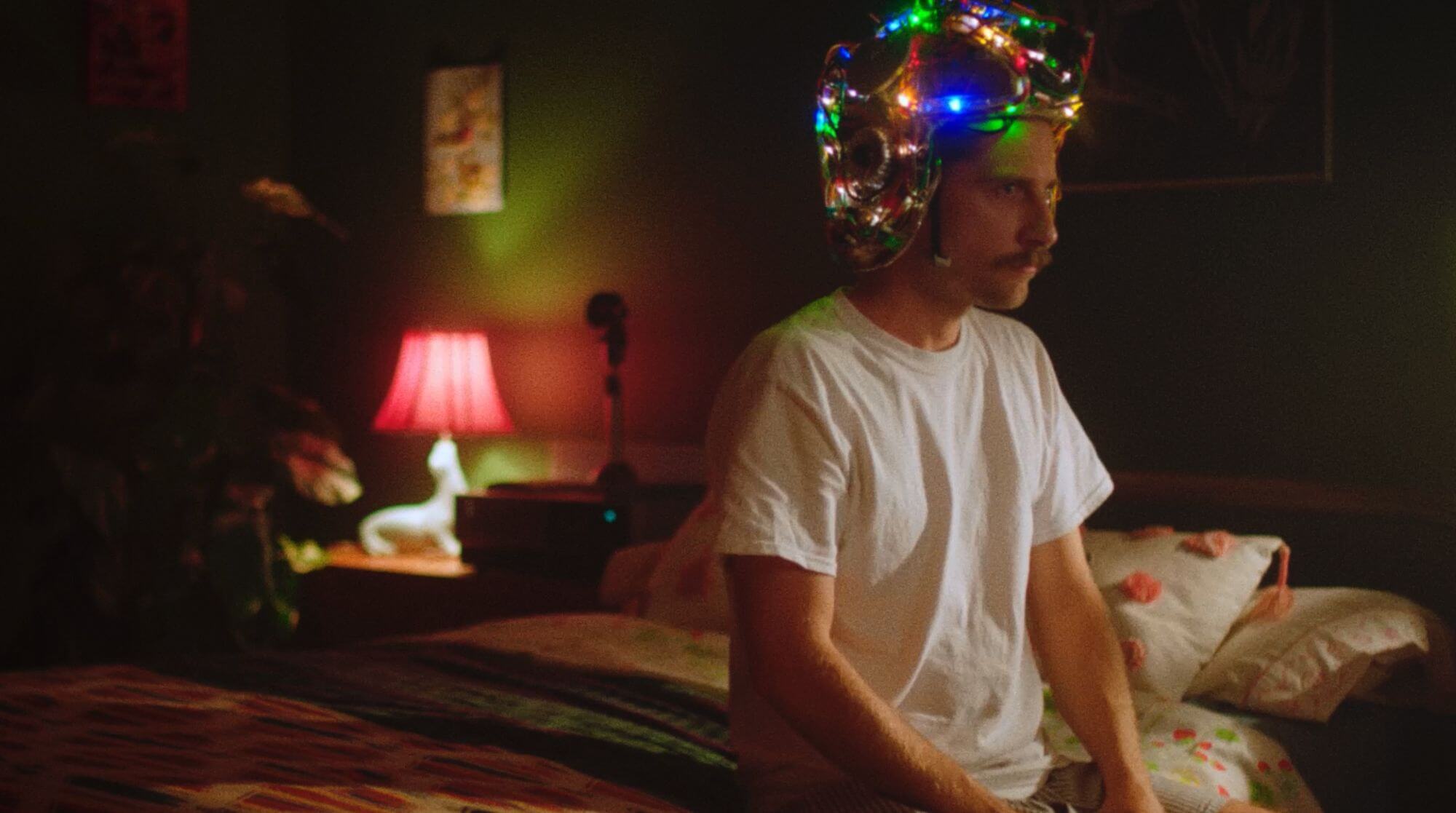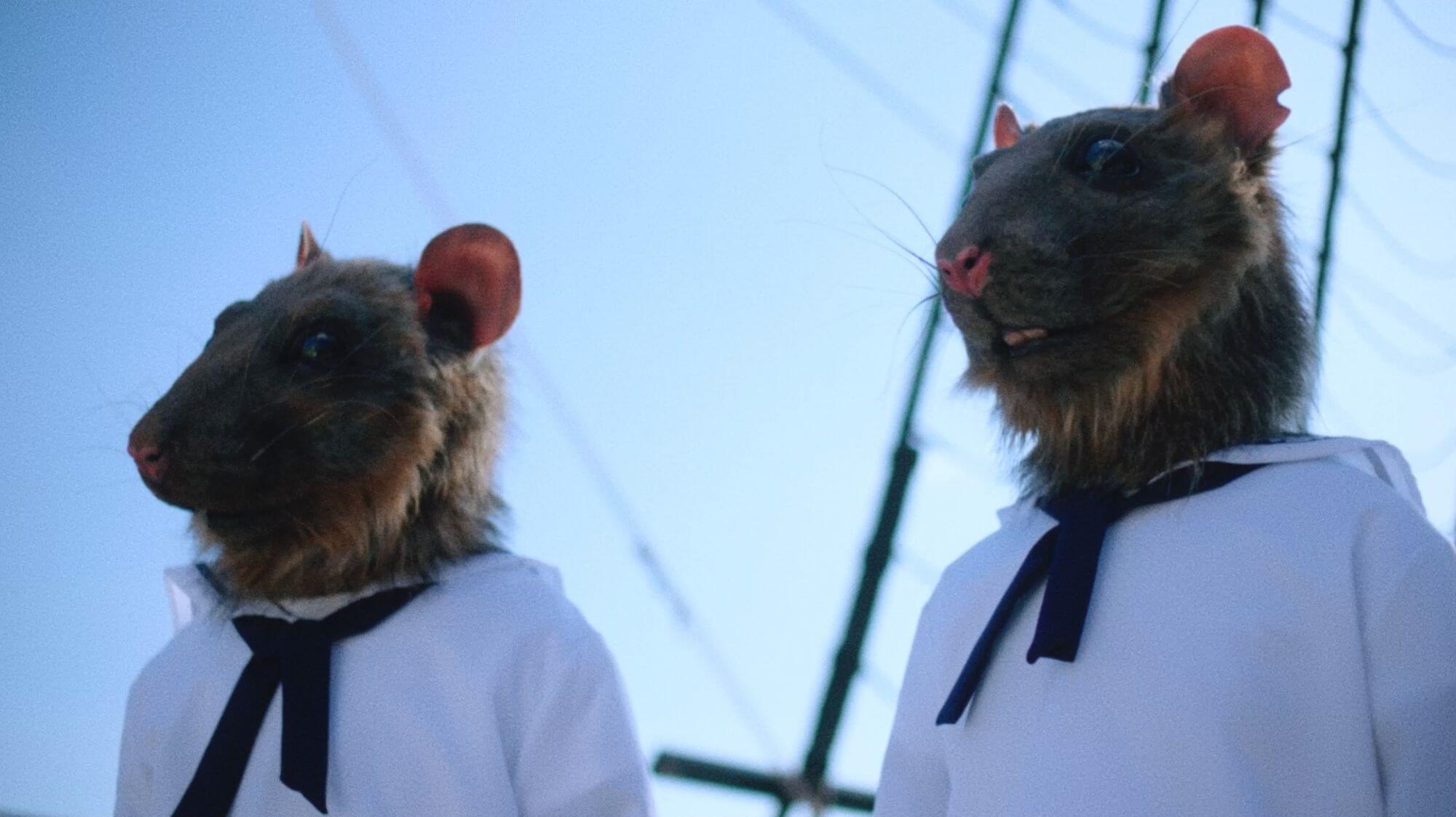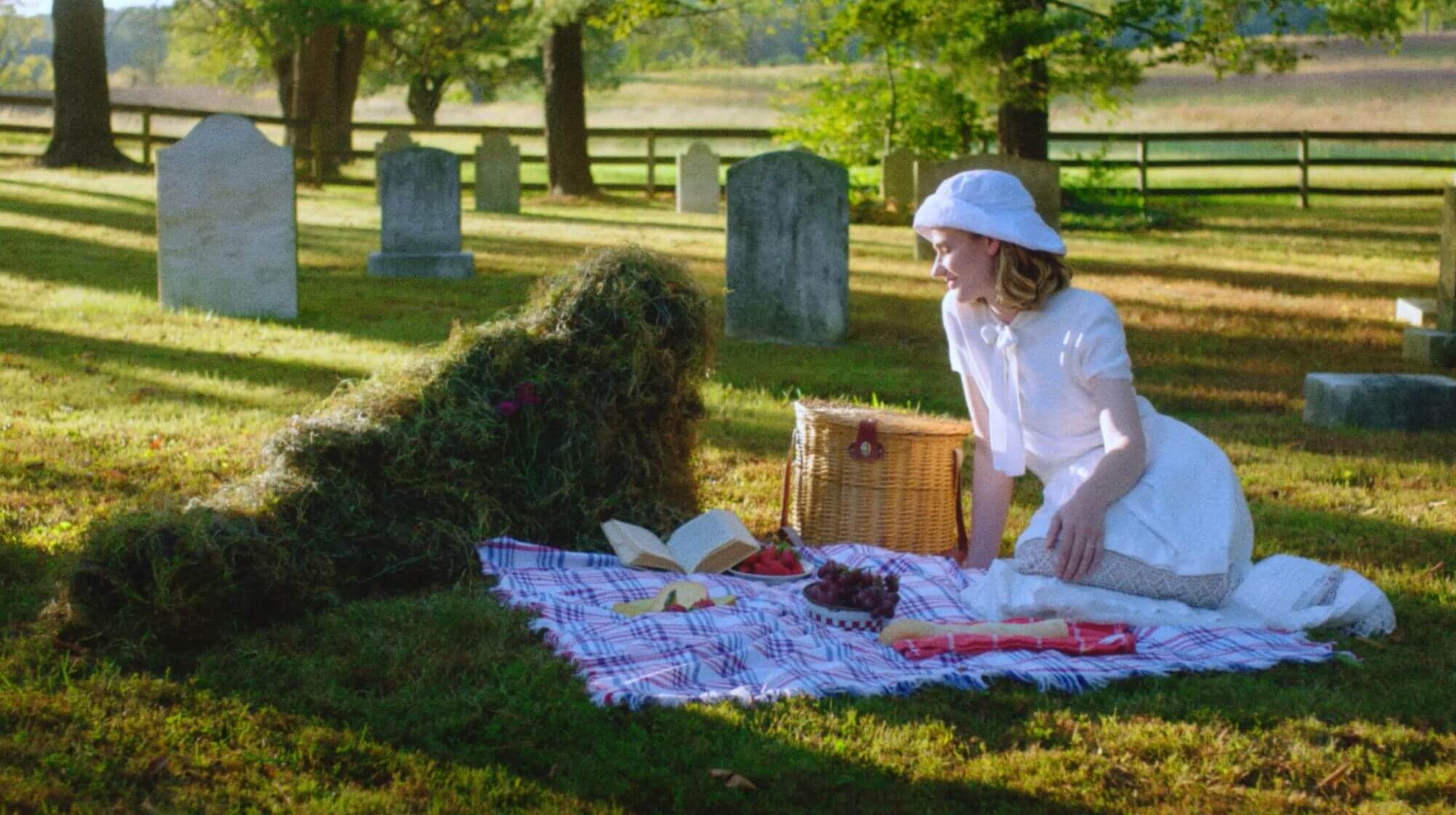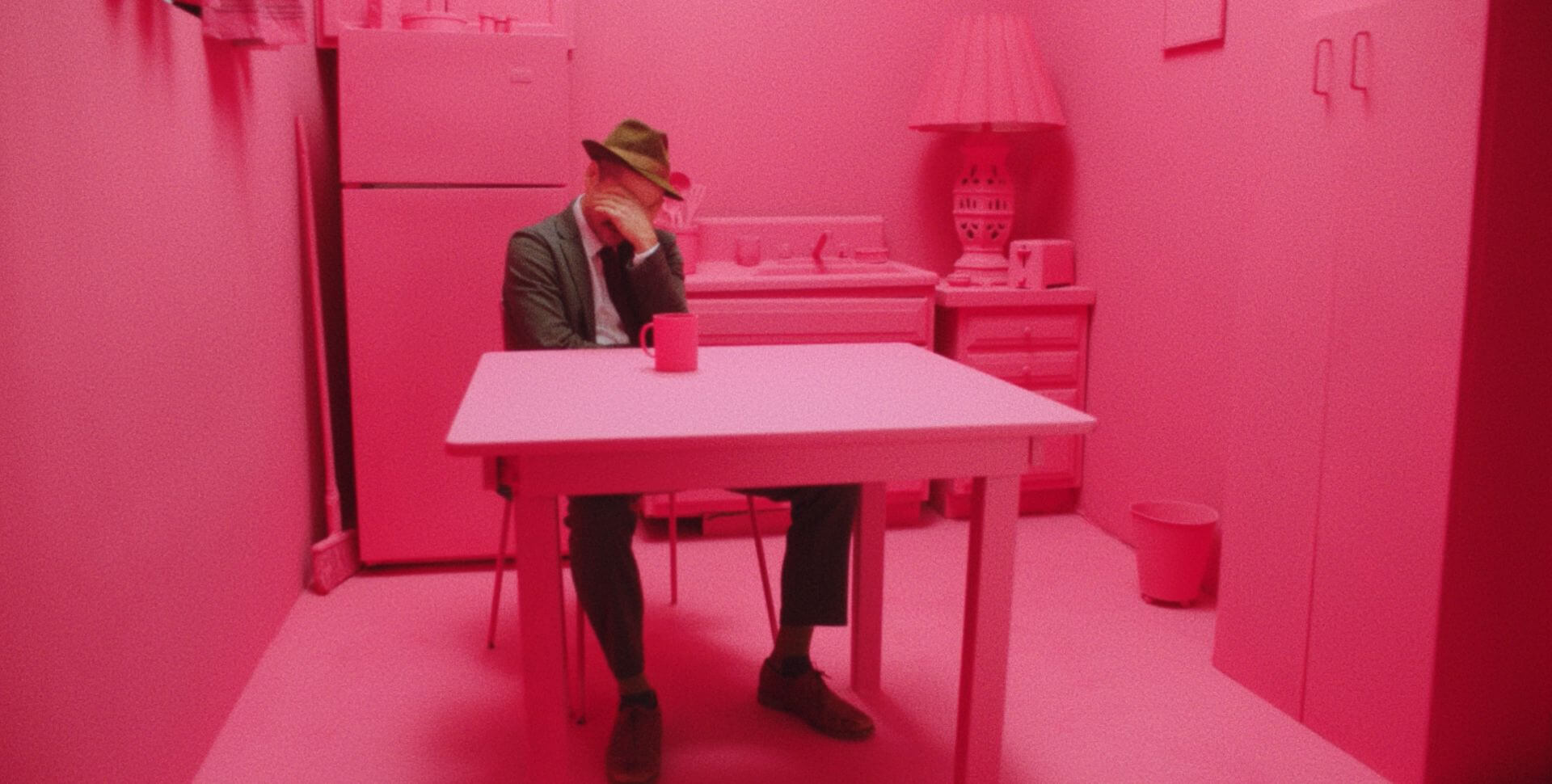Strawberry Mansion is one of the more imaginative films of the year — it's the realization of dreams of multiple types: dreams themselves, of falling in love, of sharing your life with others, even of sharing your story with an audience. Every set piece, green screen, animal suit, and stop motion sequence serves to deliver the main character on his subconscious, sci-fi journey and remind the audience that beauty in art lies in the eye and heart of the beholder. It's evocative of a culture of filmmakers who exist outside of the traditional incorporated system — the ones who would rather cut and paint pieces of cardboard to execute their vision instead of worrying about what's "cinematic." It may ring a little hollow, but it has cult status hidden within its pink rooms, rat sailors, and chicken shakes.

Built With Love: Strawberry Mansion sidesteps that familiar low-budget feeling by executing its complex visions with varying artistic styles. The fluidity and frequency of the film's changing visuals are undoubtedly its most striking aspects. All the esoteric aspirations to be found within Strawberry Mansion can be related to its title, which draws its appeal on the dreamlike nature of bright red Victorian dotting an endless field of green. In many ways, the stories we tell on film are like dreams. When we remember dreams, we remember how they made us feel or mirrors a feeling we currently were carrying. Strawberry Mansion wants to convey this feeling, and it knows enough about the intentions of contemporary filmmaking to mostly avoid relying heavily on one particular technique to transport these characters across time and space. The utilization of practical effects and costume are likely due to budget constraints, plus an understanding that with VFX — the human element is lost, to convey a story as tried and true as love and memory — a very human experience — it doesn't help to introduce uncanny valley. I think a film like this proves that the practical look almost always looks better (even if its depictions aren't 1:1) — at least when it comes to characters and their immediate setting.

Emotions Overshadowed: The impacts of Strawberry Mansion's anti-capitalist love story will vary from viewer to viewer. The film's setup is clear, convincing, and intriguing. It's introducing a Black Mirror-type concept without the series's cynicism. The film has existential concerns and openly broadcasts them, but they're not deep enough to carry the whole experience. The other half of its heart lies in the main character's unexpected quest into the center of someone else's brain. The second half of this film's energy is unexpectedly manic and nonstop, so its emotional notes come across as conventional and undercooked. It's strange — the way its main character progresses deep into multiple layers of a person's captured subconscious, yet his own arc in the film is as surface level as it gets. It's not that the pieces don't work together. It's just not an experience I feel the need to go through again, and it robs the more inspired sections of the film of some depth. I see Strawberry Mansion as a more whimsical crowd-pleaser film — mixing the magical realism of DIY filmmaking with broad themes accepted by the major studios. It comes across as genuine; I just wasn't particularly moved by it.

Strawberry Mansion is the kind of film that reminds you that cinema is limitless. In an era of shrinking studio output, in favor of similarly-packaged, renewable franchise tent poles, it is the kind of film with a unique vision and an alternative way of doing it. Films like Strawberry Mansion are worth checking out — sometimes you have to experience someone else's dreams to realize your own.

